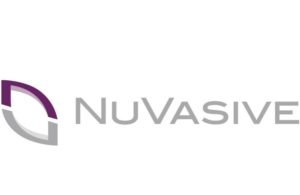 Needham analysts wrote today that they downgraded NuVasive (Nasdaq:NUVA) stock ahead of a potentially slow start to 2023.
Needham analysts wrote today that they downgraded NuVasive (Nasdaq:NUVA) stock ahead of a potentially slow start to 2023.
Analysts Davis Saxon, Mike Matson and Joseph Conway contributed to the Needham report. They switched NuVasive from a “Buy” to a “Hold” rating.
The analysts explained their belief that NuVasive’s key launches “could begin to slow” in 2023. Compounded by an increase in competition, challenging NuVasive’s market leadership position, the stock may struggle.
Another wrinkle comes in the form of a $450 million debt refinancing. The analysts said it could result in a headwind greater than 8¢ to the company’s 2023 EPS.
“Given these points, we believe the 2023 consensus estimate leaves little room for upside, which is needed to drive multiple expansion, in our view,” the analysts wrote. “While valuation appears attractive, relative to our broader coverage we believe there are stocks with more attractive risk/reward profiles leading us to downgrade NUVA to a Hold rating.”
Products that could see their sales growth slow include the Simplify cervical disc. The analysts also mentioned the Pulse spine surgery automation platform as a possibility. While Pulse has no direct competition, the analysts say that “in its current form, it does not meaningfully enhance the surgical experience.” Another disadvantage could come in the form of its lack of a robotics component.
Where the analysts could have gone wrong
While the debt refinancing may lead to headwinds, the analysts said NuVasive could refinance at “more attractive terms.” The company could also represent an “attractive” target for companies looking to make an M&A splash. One more potential upside area could be robotics, they noted.
However, they decided to stand firm on their decision to downgrade NuVasive stock.
“We don’t believe there will be meaningful upside catalysts in 2023 that could drive consensus estimates or NUVA’s multiple higher,” the analysts wrote. “While valuation appears attractive, with little room for upside in 2023, NUVA’s risk/reward is balanced, in our view, and we believe it is unlikely to outperform the rest of our coverage.”

